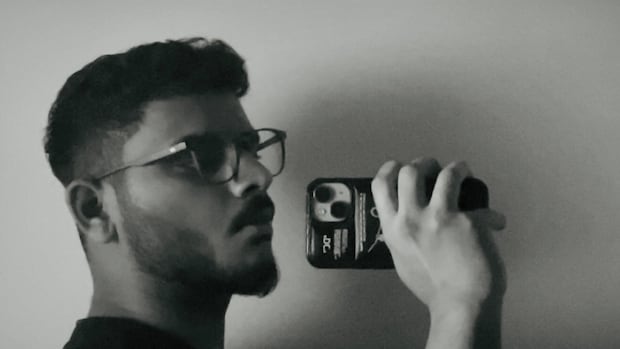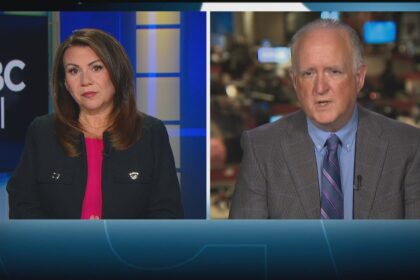SaskatchewanToday’s students are entering university at a time when the use of artificial intelligence is rapidly evolving. Many say they’re still guessing at what this means for their studies and their future careers.’Why would I pay for my degree if I’m making a robot do it?’ one student asksJanani Whitfield · CBC News · Posted: Sep 11, 2025 5:00 AM EDT | Last Updated: 3 hours agoParth Patel is among the University of Regina students who are betting that artificial intelligence will be a growing field, which is why he decided to study software system engineering. He’s currently developing his own chatbot called Ask Ian. (Submitted by Parth Patel)Jessica Yoganand didn’t open ChatGPT when it first came out in 2022. But last year, the University of Regina French education student heard more people talking about it, which tickled her curiosity to give it a try.Learning more about the generative artificial intelligence chatbot has been eye-opening for her.”It is kind of scary going into university and just like also being in a teaching profession that if you use AI to do all your work, what’s the point of your degree?” she said. She said she can empathize with what her professors are facing, as a future teacher herself, in trying to untangle how much of their students’ work is their own, versus the work of a generative AI. CBC Saskatchewan’s The Morning Edition spent time at the University of Regina during its welcome week, talking to students on their perception of how education — and their future careers — will be impacted by the rise of AI. Jessica Yoganand is studying French education at the University of Regina, which makes her empathetic to the challenge professors are facing when it comes to AI use in classrooms. (Janani Whitfield/CBC)Many said their professors fall into one of two camps — some have an aversion to using AI at all in the classroom, while others encourage students to use it, but only as a leaping-off point to generate ideas. International studies student Kasey Lillejord got the chance to compare both approaches in her last winter semester, with one teacher banning the use of AI and another allowing students’ use of it to inform their work. “I felt I learned better in the one where it was banned, because it actually made me critically think for myself and go forth and do the work instead of just making a computer do it for me,” she said. “I feel that I cut a lot more corners with AI and I don’t like that because why would I pay for my degree if I’m making a robot do it?”Kaitlyn Schropp. right, with CBC Saskatchewan’s The Morning Edition interviews university students about the use of artificial intelligence. (Janani Whitfield/CBC)Payton Todd said as an arts student, she “has a hate on for AI” and the idea of it being used in studies. “I’m an English major, so creativity is kind of the core of it,” said Todd. “[AI] takes away the human element of creating something and it robs you of being able to do it yourself.”In contrast to Todd, who has concerns about AI squelching creative expression, Parth Patel said he’s putting all his chips in on artificial intelligence becoming a prevailing force in the working world. He’s studying software system engineering, and is currently working on his own startup called Ask Ian, a chatbot he describes as being distinguished by being very casual in its language, more like a long-time friend.”What’s to be scared [of]?” he asked. “It depends on the mindset, like what we will do in the future. So yeah, go for [it].”Just like students said there isn’t a consensus from their professors on how acceptable artificial intelligence is in class, the students’ own attitudes toward it as a tool for good or bad are also not black and white.Some said they can see how it can be used as a tool to simplify their life, such as helping them create a schedule for their studies or streamlining note-taking.Natalisha Zakreski is studying to be an early childhood educator at the University of Regina. (Janani Whitfield/CBC)”I think that as long as people just [understand] that it’s a tool to be used rather than abused, I think it can be used safely,” said Natalisha Zakreski, who is studying education with a hope to become an early childhood educator. But, she noted, younger students are entering school without ever knowing a world that existed without AI. Zakreski said that studying to be an early childhood educator gives her a sense of agency, in that she can be part of helping young people chart their way through the use of this rapidly advancing technology.”I think that a lot of people need to realize that like their humanity, their brain, their thoughts, their words, they’re so much more powerful and important than a computer-generated idea.”CBC Saskatchewan’s The Morning Edition will be live on location and broadcasting the show from the University of Regina on Thursday, Sept. 11. Listen to the show between 6 a.m. and 8:30 a.m. on radio frequencies 102.5 FM or 540 AM, or stream online on CBC’s Listen App.ABOUT THE AUTHORJanani Whitfield is a community engagement producer who also edits feature storytelling and First Person columns for CBC Saskatchewan. Contact her at janani.whitfield@cbc.ca.
These Sask. university students say AI is reshaping their educations and job outlook










